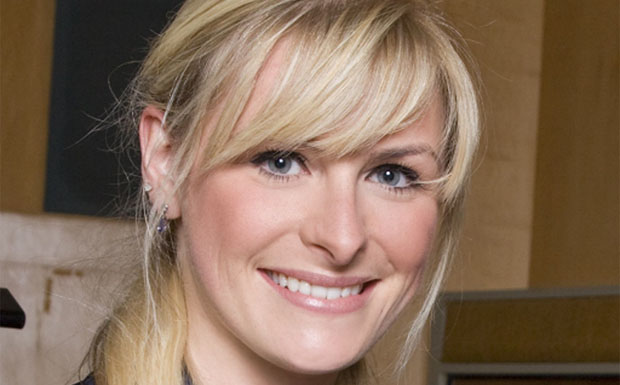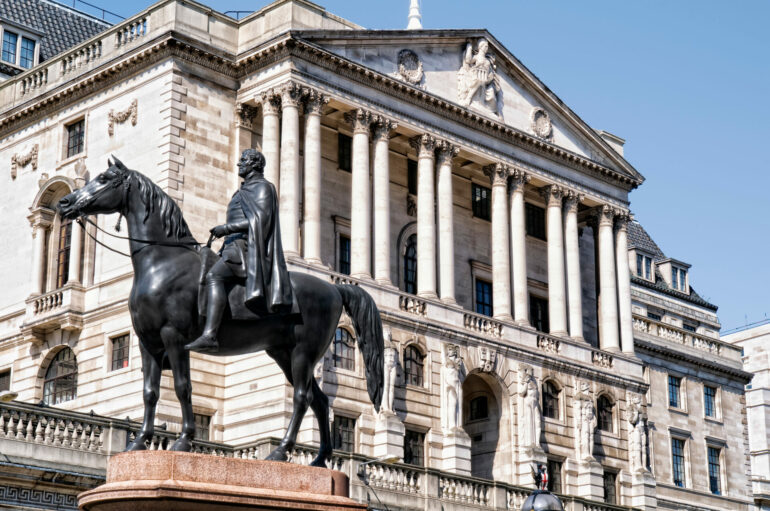The Bank of England (BoE) has today increased the base rate by 0.75% to 3%, the largest hike in over 30 years.
Now standing at 3%, this decision leaves the base rate at the highest level seen since the financial crisis in 2008.
This is the eighth consecutive rise introduced by the BoE, following months of economic volatility. The Monetary Policy Committee (MPC) voted 7-2 in favour of the increase, at the last meeting just three of the members voted for a 0.75% rise.
Factors including the ongoing cost-of-living crisis, Putin’s war in Ukraine, Liz Truss’ catastrophic ‘mini-Budget’ and later resignation have all contributed to the rise.
This decision once again leaves mortgage markets vulnerable, potentially pushing up costs for millions of homeowners across the UK.
More than 1.5 million households are on tracker or standard variable rates while as many as 1.8 million borrowers on fixed-rate mortgages will have to refinance by next year.
It has been estimated that 300,000 of those may need to do so by the end of the year.
Reaction

Emma Hollingworth, distribution director at MPowered Mortgages:
“Today’s decision by the Bank of England to raise interest rates accentuates the need for prospective buyers to seek professional advice in what continues to be a rapidly evolving market.
“As lenders further respond to the 0.75% rise, brokers need to be prepared to support buyers in finding what will work out to be the best deal for them in both the short and longer term.
“In the current environment, we at MPowered Mortgages are seeing rising demand for tracker products, as well as longer term fixes, which lenders are responding to.
“Suitability of products will of course continue to depend on individual circumstances and a joined up approach from those within the industry is needed when it comes to meeting homebuyers’ needs at this time.
“Facilitating the mortgage journey and making this as quick and seamless as possible remains vitally important. At MPowered Mortgages, we use AI and data-driven innovation to simplify and streamline this journey, supporting brokers in helping homebuyers complete their purchases at this time.”
Hannah Bashford, director of Surrey and Devon-based Model Financial Solutions:
“The Bank of England base rate decision on Thursday will not have a huge impact on mortgage lending as lenders had already priced in this increase.
“In fact, many had forecast a hike that was higher than the one we saw today. Tracker rates will increase after today’s rate decision but they remain very competitive in comparison to fixed rates.”
Anil Mistry, director at Leicester-based RNR Mortgage Solutions:
“This base rate increase is going to have a minimal impact on fixed rates. Lenders have already priced their products with future rates at 6%.
“The appointment of a new PM and Chancellor has brought back confidence into the market, and meant future rate increase expectations are at a lower level.
“So, as we have seen this week, lenders could reduce rates, or keep them stable, despite the fact we’ve just had a rate hike.”
Austin Johnson, founder at Colchester-based Mortgages for Actors:
“Although the base rate is still not that high when compared to 15-20 years ago, such a sharp and sudden hike for those who have been fixed very low for very long will leave them reeling at the change. Borrowers on the whole will be affected, but worst hit will be the people whose fixed rate ends in the next few months.
“Some people could see their monthly payment double. People on variable rates, especially portfolio landlords, will need to get the ball rolling ASAP as they will have increasing costs across their whole portfolio. Even the people in the middle of a long fix will now be limited in their flexibility.
“If they suddenly needed to get out of the fix, they will be hit with a huge hike in rate. Movers will be wary of moving, buyers will be wary of buying and rents will rise to make up for this. Property prices will need to come down to cope with the change if we want to keep this market moving smoothly. With things as they are, people need to talk to their broker to ensure they get the best possible deal.”
Paul Holland, mortgage broker at Chatham-based Henchuch Lane Financial Services:
“Fixed rates have already factored in this increase so they shouldn’t move any further north. They tend to be based on swap rates, which if anything, are now coming down as some confidence is restored to the market following the U-turn on everything Kwasi and Truss did. Tracker rates and variable rates will of course go up as a result of Thursday’s rate rise, but there is such a huge gap between the bank rate and fixed rates that we shouldn’t see any further hikes in the short term.
“Anyone exiting their mortgage now and in the foreseeable will be having a shock in comparison to the rates they’re used to and we’re currently dealing with clients whose mortgages are going up by £500-£1000 per month.
“This is making the energy crisis seem like a drop in the ocean and there will be a lot of people defaulting on their mortgages or selling their houses in the medium term. Savers on the other hand should of course start to benefit from this.”
Ashley Thomas, director of London-based mortgage broker, Magni Finance:
“As expected, the base rate has increased to 3%, although mortgage lenders will have priced this in over the past month already. As absurd as it sounds, you might find that more mortgage rates will reduce as the base rate has not increased as high as some feared. Clearly the appointment of Rishi Sunak as PM has had a significant and positive impact for the mortgage market and therefore homeowners.”
Justin Moy, founder at Chelmsford-based EHF Mortgages:
“This rate rise was not unexpected and will bring us in line with similar economies around the world. What we now need to see is some stability among fixed rate mortgage products, given we have had some minor reductions in the last week or so.
“A bigger problem will be the affordability assessments and stress testing on both residential and buy-to-let mortgages, as the amount you can borrow will inevitably reduce again.”
Elliott Benson, mortgage broker at Sett Mortgages:
“Though this is the rise we were all anticipating, it will still come as a shock to many homeowners. The days of ultra-cheap mortgage finance are now over. I would advise anyone who is still thinking of buying or remortgaging to keep calm, seek professional advice and take the right decision for their own circumstances. Never has independent mortgage advice been more important.”
Bradley Post, CEO of RIFT Tax Refunds:
“Today’s decision will only add to the existing anxiety caused by the current cost of living crisis that has engulfed many households in recent months.
“As a result, those who are already stretched financially thin are now facing a further squeeze on their monthly earnings, as the cost of everything from our mortgage repayments, overdrafts loans and credit cards is set to climb.
“Unfortunately, there isn’t a great deal that can be done to ease these increased costs, other than tightening our belts where our borrowing habits are concerned.
“Of course, for the vast majority, the belt simply can’t get any tighter, whilst many more have no other choice but to utilise overdrafts and credit cards simply to get by from one month to the next.”
Iain Crawford, CEO of Alliance Fund:
“The mere suggestion of a three per cent base rate will be unheard of for many homeowners who have only known interest rates to sit below one per cent until very recently.
“So, they can be forgiven for feeling a tad dizzy at the prospect of what their mortgage is now likely to cost them, with the Bank of England not only implementing the largest single increase in over 33 years, but also pushing the base rate to its highest since November 2008.
“Such a hike will also stun those who were currently in a position to buy, but are now likely to find that the cost of borrowing is no longer as affordable as it was.
“This will not only dampen their enthusiasm within the sales market in terms of the price they are willing to pay for a property, but it’s likely to keep many exiled within the rental sector for quite some time more.
“So, while the housing market may be in for a very rough ride over the coming months, it’s a safe bet that the rental market will be thriving.”

Richard Pike, Phoebus Software chief sales and marketing officer:
“Today’s increase may be the biggest single rise since 1989, but it was also the worst kept secret. It is, however, in line with The Fed, announced yesterday, and as such is a global trend that we are all learning to live with.
“Bringing inflation under control is difficult at the best of times, but when the price of oil and gas continues to rise and the war in Ukraine affects the movement of goods around the world, you have to ask if it is the only weapon in the Bank’s arsenal?
“Without knowing what will come out of the autumn statement the MPC are, to a degree, shooting in the dark and borrowers are taking the brunt of their decisions. Swap rates are dropping and lenders may have already factored in this latest rise in the base rate.
“However, this is not going to be the last increase and borrowers will certainly see their mortgage interest rates increasing over the next few months.
“The housing market is, I think, heading into a period of stagnation as we wait to see whether the current strategy has any effect on our rising inflation.”
Marc von Grundherr, director of Benham and Reeves:
“Forget Halloween, it’s the Bank of England that has just delivered the fright of the year for the nation’s homebuyers with the biggest jump in interest rates in over three decades.
“Those on variable rate products can expect to see an immediate increase in their monthly payments, while those coming to the end of their fixed term can be suitably worried about what’s to come when they do remortgage.
“This latest increase will also do little to revitalise the declining level of buyers entering the market, with many now finding they simply can’t afford the cost of borrowing compared to just a few short months ago.”
Jonathan Samuels, CEO of Octane Capital:
“While the mortgage market has settled in recent weeks, today’s latest base rate hike will certainly sow more seeds of panic amongst the nation’s homebuyers and who can blame them after witnessing the largest single increase since 1989.
“The average homebuyer opting for a variable rate mortgage can expect to see the cost of their monthly repayment increase by around £166 per month as a result of today’s increase.
“Those currently coming to the end of a three-year fixed mortgage will also see an increase as they look to secure another fixed term, with their monthly repayment increasing by an estimated £257 per month, despite having cleared a substantial chunk from their original loan.”
James Forrester, managing director of Barrows and Forrester:
“The prolonged period of borrowing affordability that the nation’s homebuyers have basked in for some years is well and truly at an end.
“This latest, quite drastic hike, shows that the Bank of England have been asleep at the wheel for some time, awaking only now to the realisation that the economy is hurtling towards a sharp bend.
“While we anticipate that the base rate will fall again come next year, we can expect market conditions to dampen over the coming months as buyers no longer have the purchasing power to pay the hefty property price premiums of the pandemic market boom, while sellers will remain stubborn in their expectations and refuse to adjust their asking price.
“Whatever happens next, homebuyers need to wake up and smell the coffee, as high loan to value mortgages at low rates are now a thing of the past.”
Chris Hodgkinson, managing director of HBB Solutions:
“We’ve already started to see the impact that a steady increase in interest rates has had in recent months, with chaos unfolding across the mortgage sector, while mortgage approvals have started to tumble, with house prices now following suit.
“Well, you ain’t seen nothing yet and today’s mammoth base rate jump is sure to prove the final nail in the coffin of the pandemic property market boom.
“Buyers will now be treading with extreme caution and those looking to sell will find that they simply can’t secure the same price as they would have this time last year.”
Almas Uddin, founding director of Revolution Brokers:
“Today’s increase may seem like a daunting one, but the good news is that the existing affordability criteria will ensure many borrowers are able to keep their head above water.
“There may be times when the base rate and resulting cost of a mortgage exceeds these stress test thresholds but should this happen it is likely to be short lived.
“In any case, lenders are keen to work with their customers and will avoid repossessions at all costs as it’s in everyone’s interest to do so. Nobody wants to see an increase in forced sales that create misery and drag down the housing market even further.
“For those worried about the increased cost of their mortgage, talk to your lender and for those approaching the end of a fixed term, start these conversations at least six months before so your lender can get you onto the cheapest fixed rate available.”
Tomer Aboody, director of property lender MT Finance:
“Rising inflation, coupled with the disastrous mini-Budget, mean this rate rise was always on the cards. Borrowers need to come to terms with the new norm, which is higher interest rates – the rock-bottom rates of the past are long gone.
“As rates rise and the cost-of-living increases, the negative impact on the housing market is inevitable. Given the importance of the housing market to the wider economy, the Government needs to provide some form of assistance to stimulate the market. This could take the form of a restructure of stamp duty or some form of mortgage interest tax relief to alleviate some of the many stresses that borrowers will face in coming months.”

Vikki Jefferies, proposition director at PRIMIS Mortgage Network:
“Getting a mortgage is one of the most important financial decisions that the average consumer will make in their lifetime, and one which can affect their finances for decades to come.
“The Bank of England’s decision to increase the base rate today has raised the stakes for prospective buyers. This has in turn driven home the need for consumers to engage with a professional mortgage adviser when it comes to getting a mortgage.
“The 0.75% base rate increase will have ramifications throughout the mortgage market. However, now is not the time for people to panic. The mortgage advice sector exists to guide consumers through periods like this.
“As a result, consumers need to seek out professional advice to make sure they secure a product that can help them achieve their financial goals in a sustainable fashion over the long term.”
Avinav Nigam, cofounder of real estate investment platform, IMMO:
“Rising interest rates have two major consequences for the property market. Firstly, there is an immediate increase in the cost of mortgages for the circa 2 million borrowers on variable rate mortgages. Secondly, there is the longer-term influence on demand and supply, since both acquiring and building new properties becomes more costly.
“Both impacts have the same consequence: more demand for rental housing, and therefore a greater need to put time, money and effort into improving our private rental sector housing stock.
“As monthly finance costs increase for borrowers on variable rates for circa 8 per cent of the UK’s housing, there could be an opportunity for some investors to buy housing to live in or as an investment. The people currently living in these homes still need a place to call home, and many will shift to the rental market.
“As borrowing costs increase, alongside the rise in general pricing that has caused this rate rise, building becomes more expensive. New building projects are being put on pause, curtailing future supply. Again, the result is that the shortage in supply of new housing gets worse. This increases demand for rental housing.
“This is why investors tell us that as interest rates rise, investing in and improving rental housing makes even more sense: commercially and socially.”
Simon McCulloch, chief commercial & growth officer at Smoove:
“The latest interest rate hike from the Bank of England will have an immediate impact on homeowners across the UK property market and is one of the steepest increases we’ve seen so far.
“Those on variable rate mortgages, around 7 million people, are likely to see their monthly payments rise significantly, leading to tough decisions for some. While those with fixed-rate mortgages are less likely to be affected, the approximately 3.1 million people on deals due to expire later this year or in 2023 should expect increased borrowing costs when searching for a new deal.
“As the likelihood of recession increases, we may begin to see calls for less aggressive monetary policy by the central bank going forward. We are hopeful that this latest decision represents the peak Bank of England rate.”
Jeremy Leaf, north London estate agent and a former RICS residential chairman:
“What’s more important for housing market prospects than interest rate movements is the confidence to take on extra debt. If home buyers who need a mortgage believe payments are going to rise rapidly, they will sit on their hands. However, just under a third of households have a mortgage and about 75% of these are on fixed-rate deals so the impact will be less immediate.
“However, if this larger movement is regarded as the highest or close to the highest rates are likely to reach then it will begin to bring some much-needed stability.
“At the sharp end, we know the appetite to move remains and not only from those who have to due to debt, death, divorce and downsizing – it’s just a question of when.”
Jack Roberts, CEO of home moving platform SlothMove.com:
“We can keep sending canaries down into the mine but we all know what the outcome is going to be — the UK housing market is headed for recession and a badly needed correction.
“It might take a few weeks for the bar charts to show it but this latest rate rise is confirmation enough that the lending environment will no longer permit growth. The eventual winners will be the first-time buyers who have seen affordability ratios stretched to breaking point, destroying the dream of home ownership in many cases.
“The Bank of England is in fire-fighting mode but this blaze of rampant inflation has burned well beyond containment. Consumers and businesses alike are being weighed down with eye-watering price hikes, particularly for energy. For many households, the idea of disposable income is now a nostalgic memory.
“A housing market that has been climbing for months, seemingly blissfully unaware of the economic carnage around it, has probably already peaked and the next six months are going to feel very different. Mortgage rates are climbing too fast and consumer confidence is so low that even a measured decline in property prices may be unrealistic.”

Nicky Stevenson, managing director at national estate agent group Fine & Country:
“Many lenders had already hiked the price of their fixed-rate deals in the aftermath of September’s mini-Budget, so there is room for cautious optimism that these deals will be largely unaffected by the bank’s announcement.
“However, it will be a different story entirely for existing homeowners on variable mortgages, who will see an immediate increase in their borrowing costs.
“Even bigger challenges are now starting to surface in the rental market where landlords have typically relied on interest-only loans to finance their acquisitions.
“Many will see their monthly repayments double or even triple when their current deals end.
“Because mortgage interest is no longer an allowable tax expense, many landlords face a stark choice between selling up, or trying to pass their ballooning costs on to their tenants.
“The risk is that we see available stock shrinking and rents going into overdrive. This is now a fast developing story which policymakers cannot afford to ignore.”
Jatin Ondhia, CEO, Shojin:
“There’s no longer any great shock in the Bank of England’s course of action, but we must prepare for the after-effects. Most obviously, while the signs suggested that the property market was already feeling the effects of rising interest rates, this latest, more significant jump, will certainly have an impact.
“As the cost of borrowing climbs sharply, people’s chances of getting onto or moving up the property ladder will diminish, while traditional property investments, like buy-to-lets, will likely become less attractive. We could see people pursue alternate forms of real estate investment, including fractional investment into developments.
“I would expect investors to consider the assets and markets they are backing right now, with diversification a logical route for many during times of high inflation and rising interest rates. Alternative investments could become more popular, with investors potentially seeking to balance higher-risk options that could better keep pace with inflation at the same time as still gravitating towards safe haven assets.”
Steve Seal, CEO, Bluestone Mortgages:
“Today’s decision will be a tough pill to swallow for consumers and borrowers across the country as rates rise for the eighth consecutive month amid the ongoing cost of living crisis.
“We have already seen a dip in the number of mortgages in the past month as consumers across the country grapple with high-interest rates and the squeeze on their personal finances. Affordability challenges will no doubt continue to be the key issue for most people in the coming months.
“For those who are struggling due to the current challenging economic environment, it’s important to remember that hope is not lost and that there are options out there to suit their unique circumstances.
“Looking ahead, specialist lenders will continue to have a vital role to play in supporting those who do not fit the ‘vanilla’ criteria because of their financial circumstances. It’s the duty of our industry and at the core of what we do to remind these customers that there’s still hope for them to make their homeownership dreams a reality.”
Conor Murphy, CEO and founder, Smartr365:
“Although this is undoubtedly a challenging time for the mortgage market, there is good reason to be optimistic about its outlook for the rest of the year. Swap rates are beginning to settle, as are average rates across major fixed terms, according to Moneyfacts.
“Demand is also red hot, with buyers keen to press ahead with purchases despite the uncertainty (only 3.1% of agreed sales fell through in the fortnight following the ‘mini budget’, in line with the 3.0% over the same period in 2019, according to Rightmove).
“Technology proves its worth more than ever during busy and complex periods such as this. With product withdrawals and replacement happening at relative speed across the board, its role in streamlining the mortgage journey is becoming increasingly important.”
Simon Webb, managing director of capital markets and finance at LiveMore:
“We were expecting a base rate rise of 0.75%, the biggest rise in 33 years, taking it to 3%, a rate last seen back in November 2008.
“This year we have said goodbye to the historically low interest rates of the past 13 years, but we should remember that even at 3% the rate is still relatively low. The last time base rate was 3%, prior to 2008, was almost 70 years ago in May 1954.
“Nevertheless, the rise in mortgage rates will be difficult for many people, especially a generation who have only known low rates.
“Data released earlier this week is starting to show a slowdown in the housing market. The Bank of England’s mortgage approvals and gross lending figures were both down in September while Nationwide’s house price index saw the first monthly fall of 0.9% since July 2021.”
Brian Murphy, head of lending at Mortgage Advice Bureau:
“Another month brings another rise to the interest rate, with no end in sight as recession looms ever closer and the Bank of England continues its attempts to battle with the inflationary pressures bearing down on the UK economy.
“Those who have secured a new fixed rate deal in the last couple of months will be breathing a sigh of relief, but for anyone on a SVR or tracker mortgage this news could be a real source of concern. Expectations are that the industry will see an upwards trend of defaults on mortgage payments in the coming months, and so we urge anyone fearing that they may struggle with mortgage payments to go straight to their mortgage provider for guidance.
“For prospective homeowners, it’s a hostile environment to be buying in, but equally it seems doubtful that market conditions will become any friendlier in the near future – speaking to a whole of market adviser is, as always, the best course of action.
“In this enduring period of rising interest rates and inflation, homeowners should prioritise future-proofing their mortgage and property ownership plans. Advisers have now helped clients through eight months of consecutive rate rises, and although the situation is far from ideal, at least it puts them in the best possible position to offer advice to clients that will stand the test of time. However, the onus to help shouldn’t exclusively fall on mortgage providers – as the Autumn statement approaches, it shall be interesting to see what if any forms of support will be introduced by the Government.”
Mark Harris, chief executive of mortgage broker SPF Private Clients:
“‘”The market expected a 75 basis points increase, which could have been worse had the Liz Truss government prevailed. Swaps have eased by more than 100 basis points since the mini-Budget, so while 3% may not be the peak for base rate, we don’t believe it needs to, or can go, much higher.
“With the money markets already pricing in their expectations, we are not expecting new fixed-rate mortgages to rise by an equivalent amount. Given how the markets reacted to recent political interventions, gilt yields and Swaps have fallen so fixed-rate mortgages could actually fall in coming days and weeks. Lender appetite and competitiveness may also increase as activity falls, adding further impetus to recent rate reductions.
“There is a trend towards tracker or variable-rate mortgages with no early repayment charges. Borrowers are opting for these in the hope that fixes will settle at a lower level before they move over. If interest rates don’t rise as far as previously feared, variable rates will prove to be increasingly attractive.
“Those on trackers will see their mortgage payments rise by the full amount – someone with a £200,000 base rate tracker mortgage currently paying 3.25% will see their monthly payments rise from £975 to £1,056. Those on variable rates are also likely to see an uptick in their monthly payments but the extent depends on their lender and how much of the rate rise it passes on via its standard variable rate. Thankfully, a very high percentage of borrowers have taken out fixed-rate mortgages over the past few years so no immediate impact will be felt.”
David Reed, operations director at Richmond estate agency Antony Roberts:
“First-time buyers, in particular, will be conscious of the impact a further rate rise on their mortgage payments. They may pause while they weigh up the feasibility of plans to buy before Christmas. They may even hold off until the Spring or Q2 and reassess the situation then.
“A preference to continue renting instead of buying will further restrict the supply of rental accommodation coming to market at a time when availability is already acute in many areas.
“The situation is very different for those buyers with a formal mortgage offer. For them, there is a rush to complete on a purchase before the bagged relatively attractive rate expires.”

Paul McGerrigan, CEO at fintech broker Loan.co.uk:
“Another interest rate increase was inevitable as the MPC uses its limited range of tools to try to balance the books. Given that inflation is at a 40-year high, at least in the short-term action needed to be taken.
“This is going to impact homeowners with tracker mortgages, standard variable rates (SVRs), and those coming off fixed rates now and across the coming months. As we enter winter was the timing right for this move?
“These are tough calls. It could be a challenging couple of quarters, but UK Plc has proven to be robust and resilient in the past and will no doubt prove to be again. On paper, and based on recent events, the new Prime Minister and his team have more experience and depth in economics and fiscal policy, whether you agree with their politics or not. So let’s see what they come up with later this month.
“Borrowers have big decisions to make, and they need help. The role of the mortgage broker and IFA has never been more important or needed.”
John Phillips, national operations director at Just Mortgages:
“Given the current climate and the Bank of England’s mandate to keep inflation near 2%, many in the sector rightly predicted a further rate rise and by 0.75%. While the Bank of England may be stuck in limbo slightly ahead of the autumn budget, many lenders already priced in such a hike, which will negate any impact on current mortgage rates.
“Nonetheless, this is a very challenging time for consumers, especially for those that need to move rather than want. While the changes in government have helped calm rates and brought more products and lenders back to market, those needing to upgrade, downsize, relocate or remortgage are still facing a real price shock and rise in household outgoings.
“Our nationwide network regularly reports that the news of rate changes gives many homeowners the impetus to explore their options, assess their affordability and secure the best deal they can with sound financial advice. With the today’s announcement and continued uncertainty among your average homeowners, there’s no reason that won’t continue. Once again, brokers are best placed to provide that support and help homeowners navigate the changing market and demands of lenders.”
Andrew Gething, managing director of MorganAsh:
“Despite the recent political turmoil, the underlying trend is for interest rates to remain high and hence mortgage rates to rise. This rise is no great shock and is here to stay. It’s certainly not helped with the Bank of England by its own admission “flying blind” ahead of the Government’s autumn statement.
“This will be little comfort to homeowners who’ve experienced rising mortgage rates. While some lenders may have already priced in this hike, this decision is a particular worry for those set to remortgage or the more than a million households on tracker and variable rate mortgages who will feel this almost immediately.
“As consumers contemplate the greater burden of new borrowing and battle against changing criteria and tougher stress tests, the principles of Consumer Duty and delivering good outcomes for customers have never been so important. Whether it’s providers, brokers or advisers, identifying and monitoring vulnerability will become a fundamental part of the process, not just to protect consumers but to prevent foreseeable harm and ensure compliance with the Consumer Duty regulations.”
Kevin Brown, savings specialist at Scottish Friendly:
“The Monetary Policy Committee’s latest interest rate hike comes as no surprise. That such a big increase was widely expected shows how far we have come in the rate hikes conversation in the past year. Until recently, rates were below 0.75% for over a decade and the last time there was such a large single hike was September 1989.
“What does that mean in practice? Debt will get more expensive more quickly, putting pressure on already strained household finances, burdened by rocketing prices and soon to be buffeted by tax hikes to boot.
“Savings rates will improve. But this is little comfort in a cost-of-living crisis, with soaring prices, lagging wages and poor real rates. Research from Scottish Friendly and CEBR shows, factoring in average savings rates, that savings pots are falling at nearly 9% as of September – the worst level in 46 years.
“Higher interest rates are unfortunately the ‘medicine’ to cure high inflation. This financial pressure is a feature, not a fault of the process. However, the medicine is hard to swallow and will be painful for many – but it is needed to get inflation down. In the meantime, savers should think carefully about their options as rates are still largely net negative in inflationary terms.”
Iain McKenzie, CEO of The Guild of Property Professionals:
“The Bank of England faces a deft balancing act as it tries to combat inflation while not sending the UK into a deep recession.
“This interest rate hike is the highest we’ve seen in over three decades and millions of homeowners on tracker mortgages or standard variable rate mortgages will see their monthly repayments shoot up immediately.
“The rising tide of borrowing costs will likely see house price gains normalise back to more historical averages in the months ahead. But the cooling effect is unlikely to be as dramatic as some doomsayers are forecasting.
“Existing homeowners have been stress-tested to make sure they are able to withstand the pain of spiking interest rates. It won’t be pleasant, but most will adjust to the new normal by making savings elsewhere.
“If you’re unsure what kind of mortgage you are currently paying, it’s worth double-checking with your lender, as our research shows that 1.5 million fixed-rate mortgages are coming to an end in 2022.”

Tasha Chouhan, UK & IE banking and lending director at Tink
“Interest rates skyrocketing to heights not seen since the 2008 financial crisis means the scramble for the best credit deals is set to become increasingly competitive. Coupling this with soaring mortgage rates limiting buying power, and the BoE’s latest data around the fall in mortgage approvals, the need for more robust and inclusive creditworthiness assessments to support consumers has never been more evident.
“Yet, our research shows that 50% of lenders are still using outdated and limited credit scoring models – potentially excluding millions of people from credit who can afford it.
“There is no place for such models in our current economic climate, and the sooner this is recognised, the better the outcome will be for both lenders and consumers.
“We need to move away from outdated lending models to unlock fairer, more inclusive affordability checks. New forward looking models can draw on technology that enables people to use the data in their bank account to provide a real-time, holistic view of their income and affordability.
“It’s vital to protect potentially at risk or vulnerable consumers from problem debt or default as the economic climate worsens. At the same time, data-driven affordability checks are key to promoting financial inclusion, as people now more than ever need access to safe, affordable borrowing options.”
Stuart Law, CEO of the Assetz Group of property lending and investment companies:
“We have been talking about the end of the buy to let era for some time, but today’s interest rate rise really does signal its final death knell, both as a viable sector for investors, or as a model that makes a useful contribution to our national housing mix.
“Even the most committed landlords will now be wondering how they will be able to fund their investments as buy to let mortgage costs soar on top of recent tax rises aimed at landlords. Other options do exist for keen property investors that work much better in the context of the current market conditions and policy environment.
“For example, investing in a portfolio of loans to housing developers means investors can receive typically 6% -9% gross yields as monthly loan interest, rather than pay a higher interest rate to a bank than the rental income for a buy to let mortgage.
“And this investment has significant social impact, allowing more homes to be built for sale and rent at a time when we are facing a deepening national housing crisis.
“We must build more homes. It is the only way to tackle affordability and undersupply in the rental and for sale markets.
“Finding new ways for private investors to successfully inject capital into the market is vital at a time when we look set for massive cuts in public spending. But we can’t ignore the other crucial aspect of this which is supply side reform.
“That means unrooting the planning system to promote more development. However, once again whether this can be delivered by Government is in doubt as we all await the autumn statement on November 17th, with rumours swirling that the planning reforms promised by the last Prime Minister will be scrapped.”
Jon Halbert, mortgage and protection adviser at Ormskirk-based Key Financial Associates:
“This rate rise potentially kills the purchase market stone dead and is catastrophic for anyone coming out of a fixed rate. Anyone who fixed their mortgages last year for longer than two years, at less than 2% for some and less than 3% for others, may not need to change their spending habits for now.
“For those families whose fixed rates end in the next few months, this could mean mortgage defaults and even repossession. £100,000 over 25 years @ 2% last year would have cost £423.85/pm, whereas the same borrowing @ 6.00% will now cost £644.30/pm.
“Anyone who has a mortgage with a fixed rate ending within the next six months who is worried about this and the effect it will have on them should speak to a mortgage broker as soon as possible. It has never been more important to be proactive.”
Moubin Faizullah Khan, CEO of GetGround:
“While the most recent Bank base rate hike feels seismic and historic, the relative immediate impact on landlords, investors and homebuyers seeking new mortgages is going to be less dramatic.
“The market turmoil that followed September’s mini-budget caused swap rates to increase more than needed. This means that today’s extraordinary rate rise is already priced into many lenders’ credit risk plans. Logically therefore we should expect fixed rate mortgages – the bread and butter of the buy-to-let sector – to stay priced where they are for now.
“If predictions for what will go into Jeremy Hunt’s 17th November Budget are accurate, we can reasonably predict that swap rates will fall over the rest of Q4, bringing down with them the price of fixed rate mortgages that lenders feel comfortable to offer in the first few weeks of the new year.”
Colum Lyons, CEO, ID-Pal:
“With the volatile interest rate environment, homeowners and buyers are more frantic to secure the right mortgage deal, so brokers and lenders need solutions in place that make the process easy for clients, simplify compliance and bring peace of mind.
“Where there is vulnerability, fraudsters see opportunity.
“With today’s decision driving up urgency within the housing market, this leaves those without robust ID&V and automated compliance systems in place at risk of fraud. In this environment, firms must ensure they are protecting themselves and their clients.”
Ed Rimmer, chief executive officer at Time Finance:
“The new economic forecasting from the Bank of England today does also add some light relief in contrast to the base rate. Businesses will welcome the news of a predicted drop in inflation from the middle of next year and this should hopefully provide some certainty in planning and growth projection moving forward.
“However, very few businesses have the luxury of using their own working capital to invest in growth plans right now – or even to help them weather the storm that rate rises like this will bring. Some will worry about the cost of borrowing alongside other rising costs – whether that’s energy, stock and materials or personnel.
“Businesses’ appetite for growth has not dwindled and should not be put on the back burner, particularly at a time where businesses need to feel confident in investing and in their future. Whilst the circumstances surrounding the economic landscape in 2022 were drastically unpredictable, businesses are far more agile and resilient now. SMEs need to continue exploring all available options to them right now and with the help of their trusted financial partners, they should be able to the right level of support they need right now. In doing so, we can help the UK economy recover at the rate it needs.”



